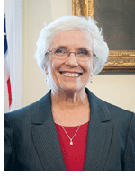Recognizing ‘Employ Older Workers Week’
– State Senator Pat Jehlen
 Everybody knows we’re living longer. We’re also working longer. 75 isn’t quite the new 65, but a quarter of people 65 to 74 are still working. Without older workers, the labor force in Massachusetts would actually be shrinking. By 2020, more than a quarter of Massachusetts will be over 55.
Everybody knows we’re living longer. We’re also working longer. 75 isn’t quite the new 65, but a quarter of people 65 to 74 are still working. Without older workers, the labor force in Massachusetts would actually be shrinking. By 2020, more than a quarter of Massachusetts will be over 55.
The idea of retirement at 65 was set in a time when half the population died before getting that old. But now the average 65 year old can expect to live another 19-20 years, and people are staying healthier longer.
That’s why the US Department of Labor has declared the week of September 22-28 to be “Employ Older Workers Week.â€
Some older workers keep working for love, because they enjoy their jobs, and they’re still getting better at them every year. Or maybe they retire from one job and find a new career. And some keep working as volunteers, making a difference in their communities. Whether paid or not, active engagement in work is good for both physical and mental health.
But plenty of people are working because they need the money. The Center for Retirement Research says “almost half†of workers are financially prepared to retire at 65 – that means that most aren’t. A Brandeis report says that only 1/3 of senior households are “financially secure†– and less than 1/5 of single seniors. UMass Boston’s Gerontology Institute just found that Massachusetts has the biggest gap between median income and necessary expenses for single elderly renters in the nation – a gap of well over $10,000.
The situation will only get worse for future retirees, as the “three legs of retirement income†(savings, pensions, and Social Security) are weakening: as the wealthiest Americans take home a bigger share, everyone else has less income and therefore can save less. As companies eliminate defined benefit plans, employees are at risk in the stock market. And even the President supports “chained CPI,†which would reduce Social Security payments based on lower, and inadequate, measures of the cost of living.
A new commission on Elder Economic Security, which I co-chair, will be looking at the kinds of supports – housing, health care, transportation, food and fuel assistance – seniors need to make ends meet.
We know that it’s harder for older workers to find new jobs, and they stay unemployed longer and are paid less in new jobs. Job discrimination is real.
There is wide diversity of skills and characteristics in all age groups, but stereotypes persist. Studies disprove those stereotypes, showing that – as a group – older workers excel in areas employers value, such as judgment, commitment to quality, attendance, and punctuality. Employers who discriminate lose out on a lot of talent.
If you’re 45 or older in the Greater Boston area and are looking for assistance with additional training or job seeking, a very helpful organization is Operation A.B.L.E. , which can be reached at 617.542.4180 or online at www.operationable.net. Along with its many other resources, AARP can also be useful in terms of retirement and career planning; explore the website at www.aarp.org/ma for more information.